Introduction to High-Level System Design
System Design Fundamentals
- Functional vs. Non-Functional Requirements
- Scalability, Availability, and Reliability
- Latency and Throughput Considerations
- Load Balancing Strategies
Architectural Patterns
- Monolithic vs. Microservices Architecture
- Layered Architecture
- Event-Driven Architecture
- Serverless Architecture
- Model-View-Controller (MVC) Pattern
- CQRS (Command Query Responsibility Segregation)
Scaling Strategies
- Vertical Scaling vs. Horizontal Scaling
- Sharding and Partitioning
- Data Replication and Consistency Models
- Load Balancing Strategies
- CDN and Edge Computing
Database Design in HLD
- SQL vs. NoSQL Databases
- CAP Theorem and its Impact on System Design
- Database Indexing and Query Optimization
- Database Sharding and Partitioning
- Replication Strategies
API Design and Communication
Caching Strategies
- Types of Caching
- Cache Invalidation Strategies
- Redis vs. Memcached
- Cache-Aside, Write-Through, and Write-Behind Strategies
Message Queues and Event-Driven Systems
- Kafka vs. RabbitMQ vs. SQS
- Pub-Sub vs. Point-to-Point Messaging
- Handling Asynchronous Workloads
- Eventual Consistency in Distributed Systems
Security in System Design
Observability and Monitoring
- Logging Strategies (ELK Stack, Prometheus, Grafana)
- API Security Best Practices
- Secure Data Storage and Access Control
- DDoS Protection and Rate Limiting
Real-World System Design Case Studies
- Distributed locking (Locking and its Types)
- Memory leaks and Out of memory issues
- HLD of YouTube
- HLD of WhatsApp
System Design Interview Questions
- Adobe System Design Interview Questions
- Top Atlassian System Design Interview Questions
- Top Amazon System Design Interview Questions
- Top Microsoft System Design Interview Questions
- Top Meta (Facebook) System Design Interview Questions
- Top Netflix System Design Interview Questions
- Top Uber System Design Interview Questions
- Top Google System Design Interview Questions
- Top Apple System Design Interview Questions
- Top Airbnb System Design Interview Questions
- Top 10 System Design Interview Questions
- Mobile App System Design Interview Questions
- Top 20 Stripe System Design Interview Questions
- Top Shopify System Design Interview Questions
- Top 20 System Design Interview Questions
- Top Advanced System Design Questions
- Most-Frequented System Design Questions in Big Tech Interviews
- What Interviewers Look for in System Design Questions
- Critical System Design Questions to Crack Any Tech Interview
- Top 20 API Design Questions for System Design Interviews
- Top 10 Steps to Create a System Design Portfolio for Developers
Introduction to High-Level System Design
System Design Fundamentals
- Functional vs. Non-Functional Requirements
- Scalability, Availability, and Reliability
- Latency and Throughput Considerations
- Load Balancing Strategies
Architectural Patterns
- Monolithic vs. Microservices Architecture
- Layered Architecture
- Event-Driven Architecture
- Serverless Architecture
- Model-View-Controller (MVC) Pattern
- CQRS (Command Query Responsibility Segregation)
Scaling Strategies
- Vertical Scaling vs. Horizontal Scaling
- Sharding and Partitioning
- Data Replication and Consistency Models
- Load Balancing Strategies
- CDN and Edge Computing
Database Design in HLD
- SQL vs. NoSQL Databases
- CAP Theorem and its Impact on System Design
- Database Indexing and Query Optimization
- Database Sharding and Partitioning
- Replication Strategies
API Design and Communication
Caching Strategies
- Types of Caching
- Cache Invalidation Strategies
- Redis vs. Memcached
- Cache-Aside, Write-Through, and Write-Behind Strategies
Message Queues and Event-Driven Systems
- Kafka vs. RabbitMQ vs. SQS
- Pub-Sub vs. Point-to-Point Messaging
- Handling Asynchronous Workloads
- Eventual Consistency in Distributed Systems
Security in System Design
Observability and Monitoring
- Logging Strategies (ELK Stack, Prometheus, Grafana)
- API Security Best Practices
- Secure Data Storage and Access Control
- DDoS Protection and Rate Limiting
Real-World System Design Case Studies
- Distributed locking (Locking and its Types)
- Memory leaks and Out of memory issues
- HLD of YouTube
- HLD of WhatsApp
System Design Interview Questions
- Adobe System Design Interview Questions
- Top Atlassian System Design Interview Questions
- Top Amazon System Design Interview Questions
- Top Microsoft System Design Interview Questions
- Top Meta (Facebook) System Design Interview Questions
- Top Netflix System Design Interview Questions
- Top Uber System Design Interview Questions
- Top Google System Design Interview Questions
- Top Apple System Design Interview Questions
- Top Airbnb System Design Interview Questions
- Top 10 System Design Interview Questions
- Mobile App System Design Interview Questions
- Top 20 Stripe System Design Interview Questions
- Top Shopify System Design Interview Questions
- Top 20 System Design Interview Questions
- Top Advanced System Design Questions
- Most-Frequented System Design Questions in Big Tech Interviews
- What Interviewers Look for in System Design Questions
- Critical System Design Questions to Crack Any Tech Interview
- Top 20 API Design Questions for System Design Interviews
- Top 10 Steps to Create a System Design Portfolio for Developers
AWS vs GCP vs Azure: Which Cloud Platform is Best in 2025?
Cloud computing has revolutionized the way businesses operate, offering scalable, flexible, and cost-effective solutions for storing, managing, and processing data. Among the top cloud service providers, Amazon Web Services (AWS), Google Cloud Platform (GCP), and Microsoft Azure dominate the market. But which one is the best for your needs? In this comprehensive guide, we’ll compare AWS, GCP, and Azure across various parameters to help you make an informed decision. If you’re looking to upskill in cloud computing or related fields, don’t forget to check out our free courses and latest updates here.
Overview of AWS, GCP, and Azure
Before diving into the comparison, let’s briefly introduce the three cloud giants:
- Amazon Web Services (AWS): Launched in 2006, AWS is the oldest and most mature cloud platform. It offers a vast array of services, including computing power, storage, databases, machine learning, and more. AWS is known for its scalability, reliability, and global reach.
- Google Cloud Platform (GCP): GCP is Google’s cloud offering, known for its expertise in data analytics, machine learning, and open-source technologies. It’s a favorite among developers for its simplicity and integration with Google’s ecosystem.
- Microsoft Azure: Azure is Microsoft’s cloud platform, offering a wide range of services, including AI, IoT, and enterprise solutions. It’s particularly popular among businesses already using Microsoft products like Office 365 and Windows Server.
Recommended Topic: Low-Level Design of YouTube Recommendations
Key Features Comparison
When choosing a cloud platform, it’s essential to evaluate their key features. Here’s a breakdown of what AWS, GCP, and Azure offer:
Compute Services
- AWS: Offers Elastic Compute Cloud (EC2) for scalable virtual servers, Lambda for serverless computing, and Elastic Beanstalk for app deployment.
- GCP: Provides Compute Engine for VMs, Cloud Functions for serverless computing, and App Engine for app deployment.
- Azure: Features Virtual Machines, Azure Functions for serverless computing, and App Services for app deployment.
Storage Solutions
- AWS: Offers Simple Storage Service (S3) for object storage, Elastic Block Store (EBS) for block storage, and Glacier for archival storage.
- GCP: Provides Cloud Storage for object storage, Persistent Disk for block storage, and Coldline for archival storage.
- Azure: Features Blob Storage for object storage, Disk Storage for block storage, and Archive Storage for long-term data retention.

Machine Learning and AI
- AWS: Offers SageMaker for machine learning, Rekognition for image analysis, and Polly for text-to-speech.
- GCP: Provides AI Platform for machine learning, Vision AI for image analysis, and Natural Language API for text processing.
- Azure: Features Azure Machine Learning, Cognitive Services for AI, and Bot Service for building chatbots.
Recommended Topic: Top 10 DSA Questions on Linked Lists and Arrays
Pricing Models
Pricing is a critical factor when choosing a cloud platform. Let’s compare the pricing models of AWS, GCP, and Azure:
Pay-As-You-Go
- AWS: Charges based on usage, with no upfront costs. Offers a free tier for new users.
- GCP: Follows a per-second billing model, which can be more cost-effective for short-term workloads.
- Azure: Offers pay-as-you-go pricing with discounts for long-term commitments.
Reserved Instances
- AWS: Provides significant discounts for reserved instances (1-3 years).
- GCP: Offers committed use discounts for sustained usage.
- Azure: Features reserved instances with flexible payment options.
Free Tier and Credits
- AWS: Free tier includes 750 hours of EC2 usage per month for one year.
- GCP: Offers $300 in free credits for new users.
- Azure: Provides $200 in free credits for the first 30 days.
Recommended Topic: Top 20 Full Stack Developer Web Dev Questions
Performance and Scalability
Performance and scalability are crucial for businesses with growing demands. Here’s how the three platforms stack up:
Global Infrastructure
- AWS: Operates in 25 geographic regions with 81 availability zones.
- GCP: Available in 24 regions with 73 zones.
- Azure: Operates in 60+ regions with 116 availability zones.
Scalability
- AWS: Known for its auto-scaling capabilities and elastic load balancing.
- GCP: Offers automatic scaling with Kubernetes Engine and managed instance groups.
- Azure: Provides auto-scaling and load balancing with Azure Kubernetes Service (AKS).
Recommended Topic: Top 10 System Design Interview Questions 2025

Security and Compliance
Security is a top priority for cloud platforms. Here’s how AWS, GCP, and Azure ensure data protection:
Data Encryption
- AWS: Offers encryption at rest and in transit, with Key Management Service (KMS) for key management.
- GCP: Provides encryption by default, with Cloud Key Management for key management.
- Azure: Features encryption at rest and in transit, with Azure Key Vault for key management.
Compliance Certifications
- AWS: Compliant with ISO 27001, SOC 1/2/3, GDPR, and more.
- GCP: Compliant with ISO 27001, SOC 2/3, GDPR, and HIPAA.
- Azure: Compliant with ISO 27001, SOC 1/2/3, GDPR, and FedRAMP.
Use Cases and Industry Adoption
Different industries prefer different cloud platforms based on their specific needs. Here’s a quick overview:
AWS
- Use Cases: Startups, enterprises, and government agencies.
- Industries: E-commerce, media, and gaming.
GCP
- Use Cases: Data analytics, machine learning, and app development.
- Industries: Healthcare, retail, and finance.
Azure
- Use Cases: Enterprise solutions, IoT, and hybrid cloud.
- Industries: Manufacturing, education, and government.

Pros and Cons of AWS, GCP, and Azure
To summarize, here’s a quick comparison of the pros and cons of each platform:
Platform | Pros | Cons |
AWS | Extensive service offerings, global reach, mature ecosystem | Complex pricing, steep learning curve |
GCP | Strong in data analytics and ML, user-friendly, cost-effective | Smaller market share, fewer enterprise features |
Azure | Seamless integration with Microsoft products, hybrid cloud support | Less mature AI/ML services, occasional downtime |
Which cloud platform is best for startups?
For startups, GCP is often the best choice due to its cost-effective pricing model and strong support for data analytics and machine learning. If you’re a startup looking to build scalable applications, consider exploring our Web Development Course.
Which platform is better for enterprise solutions?
Microsoft Azure is ideal for enterprises, especially those already using Microsoft products. Its seamless integration with tools like Office 365 and Windows Server makes it a top choice. For enterprise-level system design skills, check out our Master DSA, Web Dev & System Design Course.
Is AWS more expensive than GCP and Azure?
While AWS can be more expensive for certain services, its pay-as-you-go model and reserved instances can help reduce costs. For a deeper understanding of cost optimization, our Data Science Course covers cloud cost management strategies.
How does mastering system design contribute to my career in web development?
Mastering system design is key to building scalable and maintainable web applications that can handle increased user demands. A deep understanding of system architecture not only boosts your technical expertise but also advances your career. Accelerate your learning with our specialized course at Master DSA Web Dev System Design.
Why should a web developer consider learning data science?
Learning data science equips web developers with the skills to analyze user behavior, optimize performance, and build data-driven applications. This expertise is invaluable for creating intelligent, engaging, and responsive websites. Enhance your capabilities by exploring our dedicated course at Data Science Courses.

DSA, High & Low Level System Designs
- 85+ Live Classes & Recordings
- 24*7 Live Doubt Support
- 400+ DSA Practice Questions
- Comprehensive Notes
- HackerRank Tests & Quizzes
- Topic-wise Quizzes
- Case Studies
- Access to Global Peer Community
Buy for 52% OFF
₹25,000.00 ₹11,999.00
Accelerate your Path to a Product based Career
Boost your career or get hired at top product-based companies by joining our expertly crafted courses. Gain practical skills and real-world knowledge to help you succeed.
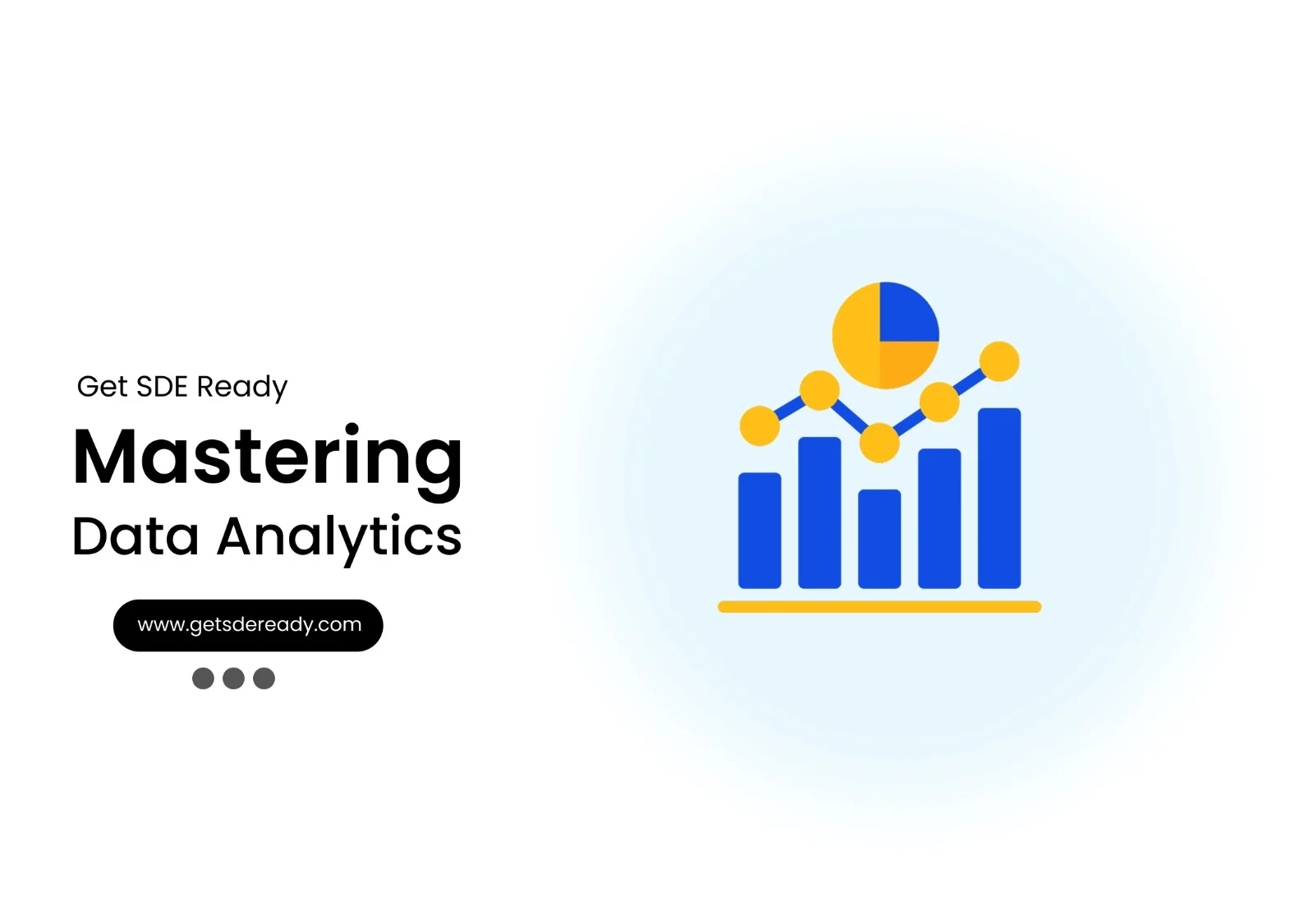
Data Analytics
- 20+ Live Classes & Recordings
- 24*7 Live Doubt Support
- 15+ Hands-on Live Projects
- Comprehensive Notes
- Real-world Tools & Technologies
- Access to Global Peer Community
- Interview Prep Material
- Placement Assistance
Buy for 70% OFF
₹9,999.00 ₹2,999.00
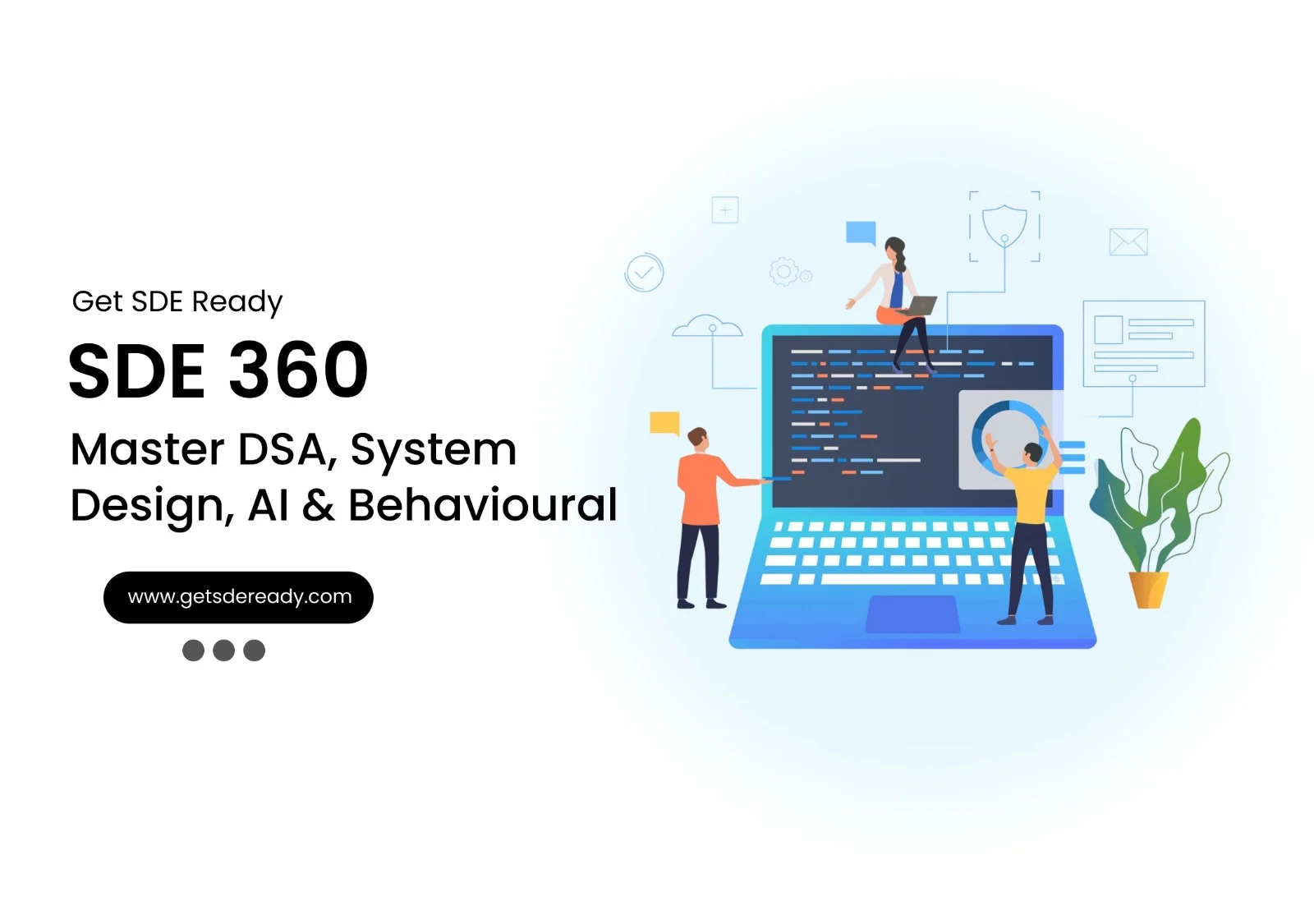
SDE 360: Master DSA, System Design, AI & Behavioural
- 100+ Live Classes & Recordings
- 24*7 Live Doubt Support
- 400+ DSA Practice Questions
- Comprehensive Notes
- HackerRank Tests & Quizzes
- Topic-wise Quizzes
- Case Studies
- Access to Global Peer Community
Buy for 50% OFF
₹39,999.00 ₹19,999.00
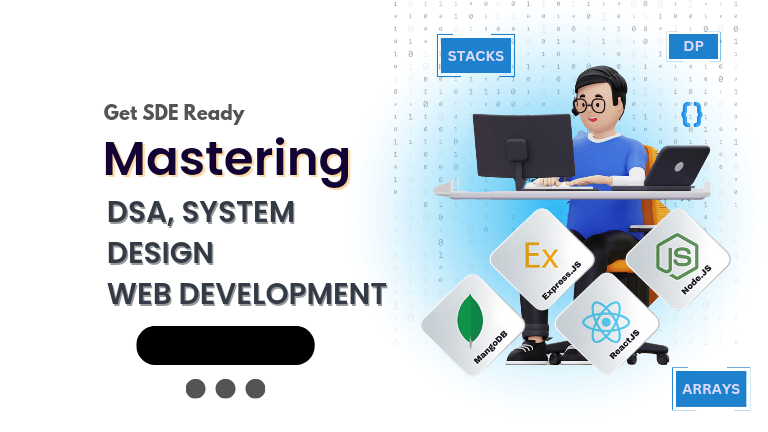
Fast-Track to Full Spectrum Software Engineering
- 120+ Live Classes & Recordings
- 24*7 Live Doubt Support
- 400+ DSA Practice Questions
- Comprehensive Notes
- HackerRank Tests & Quizzes
- 12+ live Projects & Deployments
- Case Studies
- Access to Global Peer Community
Buy for 51% OFF
₹35,000.00 ₹16,999.00

DSA, High & Low Level System Designs
- 85+ Live Classes & Recordings
- 24*7 Live Doubt Support
- 400+ DSA Practice Questions
- Comprehensive Notes
- HackerRank Tests & Quizzes
- Topic-wise Quizzes
- Case Studies
- Access to Global Peer Community
Buy for 52% OFF
₹25,000.00 ₹11,999.00
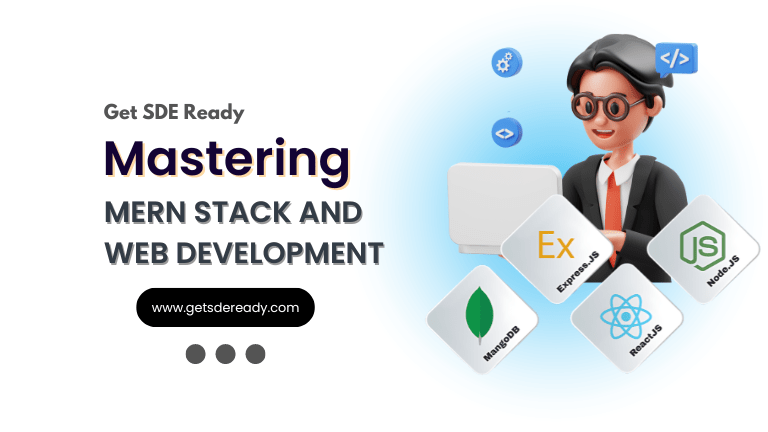
Mastering Mern Stack (WEB DEVELOPMENT)
- 65+ Live Classes & Recordings
- 24*7 Live Doubt Support
- 12+ Hands-on Live Projects & Deployments
- Comprehensive Notes & Quizzes
- Real-world Tools & Technologies
- Access to Global Peer Community
- Interview Prep Material
- Placement Assistance
Buy for 53% OFF
₹15,000.00 ₹6,999.00
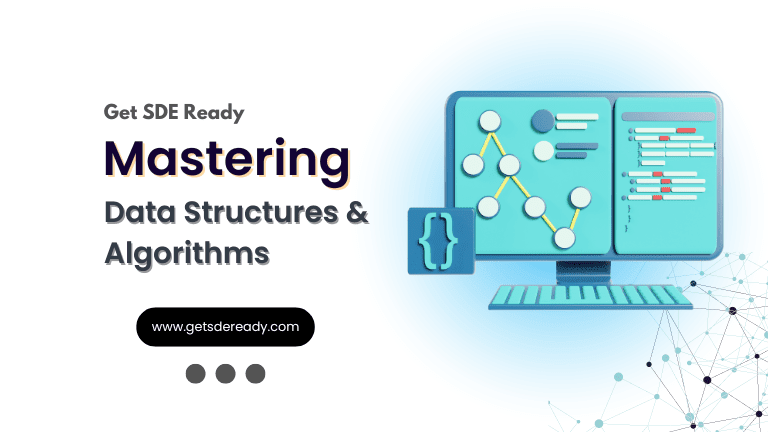
Mastering Data Structures & Algorithms
- 65+ Live Classes & Recordings
- 24*7 Live Doubt Support
- 400+ DSA Practice Questions
- Comprehensive Notes
- HackerRank Tests
- Access to Global Peer Community
- Topic-wise Quizzes
- Interview Prep Material
Buy for 40% OFF
₹9,999.00 ₹5,999.00
Reach Out Now
If you have any queries, please fill out this form. We will surely reach out to you.
Contact Email
Reach us at the following email address.
arun@getsdeready.com
Phone Number
You can reach us by phone as well.
+91-97737 28034
Our Location
Rohini, Sector-3, Delhi-110085